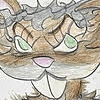HOME | DD
 leothefox — Frontiersman Three ** NEW SERIES TEASER **
leothefox — Frontiersman Three ** NEW SERIES TEASER **

#1819 #1860s #adventure #dreadful #england #frontier #frontiersman #mystery #pacificnorthwest #penny #pennydreadful #pugetsound #series #teaser #three #wild #1820s #leothefox #pennyblood #lepthefox #new #oregoncountry #leothefpx #leothegox #leorthefox
Published: 2023-10-19 14:00:13 +0000 UTC; Views: 1038; Favourites: 43; Downloads: 0
Redirect to original
Description
This is another taste of the upcoming series, with a small hint of the horror element
Everything is in quotation marks since this is a part told by one character to another, that's why our mystery frontiersman isn't pictured
This series is based on the life and crimes of a real person, and this person was alive during the lifetime of some of us, but this story is set in the 1820s. I am not giving away too much, but this story is set in my part of the country and re-frames a series of infamous crimes as heroic, because this is a "penny blood" or "penny dreadful", so this person is getting the same treatment that those authors gave to Dick Turpin, Jack Sheppard, and Spring Heel Jack in the 19th century This is written in the period British style, but the setting is North America, mostly here around the Puget Sound Prepare for tidbits from history, regional stuff, horror, adventure, and whatever crazy stuff that falls outta my brain along the way!
* * * * THE NEW SERIES IS HERE:
The Girl of the Chill Wind,I. The Girl of the Chill Wind It was on a bright spring morning in year 1819 that a woman of great beauty emerged from an adobe structure and into the brilliant sunlight of the Spanish settlement then known as Yerba Buena. Today we call this remote place San Francisco, after the mission which the Franciscan monks had founded. This woman and her beauty, and, indeed, the infamy that would follow, come well before the cry of “Eureka”, before gold and boom towns, and absorption by the American nation. The bright white walls that reflected the sun and braced up to chill ocean breezes are all things of Spanish construction, missions, pueblos, and presidios, all in white walls and red tiled roofs, erected to claim savage upper California for church and king. Yet this woman is, herself, an American, a descendant of the young nation so recently torn away from the British Empire. She is a rare sight, and her presence is marked by the Spanish subjects who move to and fro, and, if we are being thorough, she draws even the eye of the chaste monks, who are ever present. Modest garb covers her graceful form, and she pulls a shawl tighter around herself, for although the sun's rays cut brilliantly through the ever flowing fog, the cold that rolls from the great bay is nearly arctic in its frigidness. Her hair is long and parted in the middle, and the plates of spun auburn silk are stirred by the breeze and by the action of her motion as she shuts the great wooden door behind her and moves down the crude streets of this early colony. She does not gaze down on the sun glinted sea, nor does she pay heed the tall ship that waits at the dock. She is on an errand for her father, a man influential enough to hold sway among the separative Spanish settlers. But what comes now? A man had been standing in the shadows to one side of the building. Yes, standing and watching—and waiting! He moves into the light, almost a specter, for he is as different from the people around them as the woman is. He steps lightly, jauntily, along the walk beside the busy street, and closes the distance to the woman. She does not see him, nor does she suspect. Far from settled civilization, women are known to fare poorly in savage upper California. There can be no mistake, the man has the woman in his sights. What will come? A pair of rough hands then closed over the eyes of the stately young lady, and a male voice full of gaiety added to her shock by asking “I'll bet you can't guess who, Diane!” She found her voice and replied “It cannot be!” The man allowed the surprised woman to turn round, to turn and take in the rugged sight of a young man she thought left behind her, a thousand miles north in the wilds of Oregon Country, a young white son of the United States, yet of that rugged breed that first went west, a man of easy toothsome smiles, bright staring eyes, and an easy charm. “Theodore!” she stammered. “How did you come to be here? And—my word!—how you look!” “I guess you were busy, Diane,” Theodore said to her, “for I waited and waited on another letter. I know how slow they can get out here, so I decided I would come myself. I see you still wear the same perfume, you don't know how I've dreamed of that fragrance.” “It is called 'Heaven's Scent', doubtless you can get a bottle for yourself.” “You know I'd rather you than a bottle.” “Why come all the way out here?” “Can I help it if I became worried for you, out among these Spaniards?” Diane took a step back and briefly turned her eyes heavenward, as if appealing to the Almighty for patience. “You needn't waste your worries on me. As you can see, I am quite well.” “I do worry, Diane. I always worry.” “If you wish to worry about something, why not worry about completing your education? Why not worry for your future? A man can't trap furs in the wilds of those rainy woods for his whole life.” Theodore, as she called him, was a sight, for he looked indeed like a man from deep in the wilderness, his trousers were dirty and in need of mending, his hat was made from the pelt of a raccoon, he carried with him the tools of a mountain man, the breed of worn individuals who shun civilization. It was clear from the sudden change in his expression and the way he looked down at himself that he had been in perfect harmony with this condition until she brought it to light as a negative. Truth be told, he had let his looks decline since last they had seen one another in the camps beside the waters of the northward Puget Sound, the great body of salt water that had been named by Vancouver on his expedition. “I own that I'm behind in my studies, Diane. I reckon I just thought you would be happy to see me again. Why, in August—” “I believe I'd made my intentions clear in August. You weren't concerned about your schooling, or even the prospect of respectable work. You had time to fight bears, or wolves, or even savages, but not to grow up.” She paused her harangue, realizing she had been raising her voice and turning the heads that wore broad sombreros around her. She sighed “Teddy, how did you get down here to Yerba Buena?” He shrugged like a child confronted with mischief and answered “I sailed for part of the way. I cut across parts of the coast on foot before that. Let's not talk so much about me, what have you been doing?” “I'm no child to be worried about so, I have been working. Working, in fact, for my father's interests. I may have secured permission for him to purchase land here.” She began to walk and he walked beside her “Diane, you would not have to work if you were my wife. Your father could rest easy knowing that his daughter was taken care of. “ “How could you? You have stopped your lessons to come here, and there is not enough civilization up in Oregon Country to fill a hat box.” “What do you want to hear, dearest? That I've found lost treasure and built a log palace for you? What would win your heart for me? What do you want to hear?” “I have already told you. You may write me when you are ready to tell me that you have completed your studies and taken a real occupation—” “Diane, I—” “Don't interrupt, Teddy! Honeyed words will not do it.” Theodore merely nodded and let her finish. “I have errands to run. You know you might take up the Spanish tongue, it is spoken by millions across the world. I take it that sail I see down on the water belongs to the craft that brought you. You might as well go down to it and prepare to sail. Have a pleasant voyage.” “Oh, how I miss you, how I will continue to miss you.” “I believe I said to have a pleasant voyage. Excuse me.” She crossed the street at the corner and went along her way. Theodore stood at the corner and watched as she went. She looked back once, then twice, and then was out of his sight. Had that been their last meeting, perhaps history would tell a different story. All around, humanity went about its business, blind to the heartbreak in its midst. Mission men guided Indians past unfortunates who saw none of the plenty held by the church. Others who passed along the ways were abuzz with anticipation of bull and bear fight, the favorite entertainment of this isolated population. These two young people who parted so unhappily under the Pacific sun might not have seemed to be anyone special on this day in 1819, but these were the young frontiersman, Theodore Bundy, and the wealthy Diane Edwards. No one could have known at that moment in time that they would become so embroiled in tragedy and infamy, writing among the most shocking chapters in the wild history of the frontier in the far west. , Diane Edwards went down the street, knowing she would never see Theodore Bundy again, and Theodore Bundy went silently down towards the ship, swearing to himself that he would see her. While many already, doubtless, know the legend of the fates of these two persons, we propose to begin here, at a beginning of the tragic history, rather than basely relate a list of already well-known crimes and their dates. We pray your indulgence as we relate of dramatic reading of the true history, with which we propose to educate as well as entertain. Please forgive our humble digression, for we now return to the path of the brokenhearted Theodore Bundy on his path away from the healthy sights of the Spanish street. Within the hour, Theodore was aboard ship, hidden below decks, relating all that had happened to an old friend, a sailor born in the far off lands of China, known only as “Shanghai Charlie”. His dress was practical for sailing man, for such he usually was, the only aesthetic concession to his home country was the long braid of dark hair, the only hair that grew from his aged head, and this his usually kept coiled under his hat. The two men talked for a space, for there was little else to do, when Charlie raised the subject of another incident entirely. “Were you not lately by New York, Theodore?” Theodore started, a mixed reaction taking hold of him, for he had almost forgotten himself: “No, Charlie, New Jersey. There is an island there called Peck's Beach, little more than grazing land...” “You want to know how I know, I can see from your face. Thomas Stafford is aboard, he told me he sailed with you and you told him.” “I suppose it is no secret. You see, it is not so gloomy a place, and in the summer months the people will come and have picnics there. It was, of course, cold and windy while I was there. You see, I had gone there to think. I had been spending time with my cousins who live out that way.” “Yes, I remember you told me you were born out east. Go on, my young friend.” Theodore smiled slightly, for his aged celestial friend had the memory of an elephant. He continued: “The visit had not gone as I would have hoped, you see. To my cousins I am different, somehow. I got to feeling as though I had no real friends there, and so I went out in the night air to think. The moon was full and bright, so I had little trouble seeing my way, the sand reflects the light brilliantly. I confess, I fell again to think about Diane, for she hadn't yet stopped writing. As I thought of her, walking along the lonely beach of that island, it seemed to me that my tired mind sculpted her form from the moonlight. In a moment my senses caught up to what my eyes saw and I realized that it was a real women, of flesh and blood, that I saw walking in the moonlight. “She showed no sign of being aware at all that I too was on the beach, for she walked at a short distance, nearer the edge of a cedar marsh. As I saw her more clearly, the resemblance to my Diane faded, although I saw plainly that she possessed her own specific beauty. She might have been a queen or a mysterious dancer in a gypsy caravan, but she was real and near and I felt a growing compulsion to speak to her. “Like all men do, I feared that I should only frighten her, or excite a sense of disgust, for what was I, compared with her? I decided it would be best that I hang back and watch her, for—if nothing else—she calmed by tormented thoughts. She was like a rose standing out from the night, a part of nature's own perfection. “Ere long, however, the scene became far from perfect.” “Oh?” Shanghai Charlie asked, “but what spoiled it?” Theodore resumed his narrative, breathing faster, all sense of wistful fondness gone: “Others appeared, Charlie. They came almost like pieces of the night, bodies that looked as if they had been all wrapped in black velvet, they emerged out from the shadows and moved along the sand. They came in total silence, and they came for this nameless girl! As soon as I understood what I saw, I cried out in warning. “She was startled, having believed herself totally alone, and first she spun to look in my direction. She said nothing, but her face was all questions; questions answered far too soon when the bodies of shadow closed into her peripheral view. Her scream cut the night then, for the cold hands of the attackers snatched at her white flesh. “I did not let terror freeze me, but acted. With all my strength, I rushed across the beach grass and took the girl in my grasp. They were all around her, but I tore her away from them. “Hands like claws ripped me backward and I rolled, stunned, back on the sand, feeling as if ice had stung my flesh!” “From their touch?” Charlie asked. “Aye!” Theodore affirmed. “Their bodies were as cold as a glacier!” , ! ! ! ! * * * *
Related content
Comments: 17

👍: 0 ⏩: 1

👍: 1 ⏩: 0

👍: 0 ⏩: 1

👍: 0 ⏩: 0

👍: 0 ⏩: 1

👍: 0 ⏩: 2

👍: 0 ⏩: 1

👍: 0 ⏩: 1

👍: 1 ⏩: 0

👍: 0 ⏩: 1



















